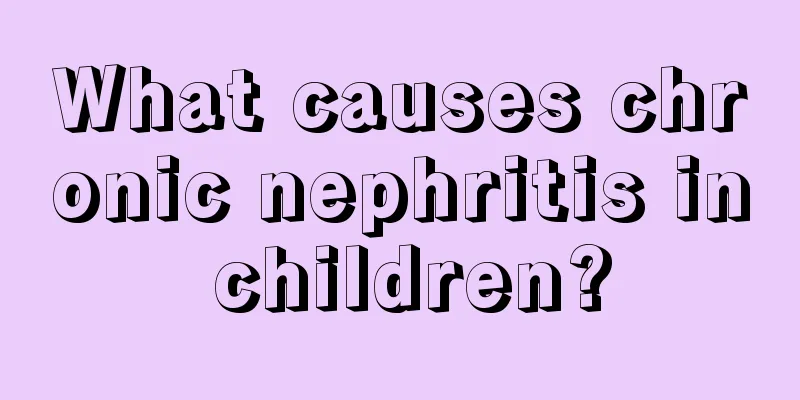If children's snoring is not treated, the "sequelae" will make parents regret it for life

|
Snoring while sleeping seems to be too common in our daily life, and therefore it is not taken seriously by ordinary people or even medical staff. Children's snoring is more easily ignored by parents because it is somewhat "hidden". In fact, relevant scientific research has confirmed that a small "snoring" can cause great harm to the body. Since children are still in a special stage of physical development, snoring may cause lifelong damage to children. So, what kind of harm does snoring bring to children? First of all, when a child snores, he breathes through his mouth, while the normal breathing pattern of our human body is through the nose. When mouth breathing occurs, nasal breathing will weaken or disappear, and the nasal cavity without the "stimulation" of airflow will slow down development, causing the space in the nasal cavity to decrease, thereby further increasing the proportion of mouth breathing, and even causing mouth breathing when not sleeping during the day. At the same time, long-term oral breathing will cause abnormal oral development, resulting in a high arch on the roof of the mouth (that is, the bottom of the nasal cavity). The high arch on the roof of the mouth will cause the left-right diameter of the mouth to decrease, further causing a decrease in the gum area, resulting in uneven teeth, protrusion of the upper teeth, etc. In addition, long-term mouth breathing can also cause mandibular hypoplasia, resulting in narrow and retracted mandible. The above series of changes will eventually cause abnormal development of the child's facial shape and affect the child's appearance throughout his life. Secondly, severe snoring can cause temporary cessation of breathing or insufficient ventilation, thereby causing a decrease in the oxygen content in the blood. This condition is medically called "sleep apnea hypopnea syndrome." Once snoring reaches this level, the harm will be even greater. As we all know, the physiological activities of every cell in our human body cannot be separated from oxygen. Once the oxygen content in the blood decreases, it will cause damage to various organs of the body. As the organ in the human body that consumes the most oxygen, the brain is the first to be affected by hypoxia damage. Studies have confirmed that hypoxia can cause delays in the development of the nervous system, leading to a decline in cognitive and logical thinking abilities. Multiple surveys have found that children with sleep apnea-hypopnea syndrome have significantly poorer academic performance than normal children. In addition, the low oxygen caused by snoring can also cause neuropsychiatric symptoms such as hyperactivity and inattention in children. A large-scale survey from Taiwan found that approximately 40% to 50% of children with sleep apnea hypopnea syndrome will experience hyperactivity and inattention. Of course, in addition to the nervous system being damaged by hypoxia, other organs of the body are also difficult to escape the damage of hypoxia, mainly manifested as loss of appetite, slow growth and development, decreased immunity, bedwetting at night, etc. In short, sleep apnea-hypopnea syndrome causes systemic harm to children. Furthermore, children who snore are prone to complications such as "rhinitis" and "otitis media". The reason is that children's snoring is mainly caused by hypertrophy of adenoids and tonsils. The adenoids are a mass of lymphatic tissue located at the back of the nasal cavity. They function similarly to the tonsils. They are more developed in childhood and can help improve immunity. However, when the adenoids are excessively enlarged, they will cause blockage in the back of the nasal cavity, thereby affecting the drainage of nasal secretions, reducing the self-cleaning ability of the nasal cavity, and causing rhinitis symptoms such as runny nose. In addition, there is a tube connecting our ears and noses, which we call the "Eustachian tube". This is the only channel for the ears to communicate with the outside world. Through the continuous opening and closing of this tube, the ears can ensure that the internal air pressure is consistent with the external atmospheric pressure and maintain normal function. The only opening of the Eustachian tube is located at the rear end of the nasal cavity. When the adenoids are enlarged, the Eustachian tube will be blocked, causing negative pressure in the ear and causing symptoms of otitis media such as water accumulation in the ear. If this situation persists for a long time, it will significantly affect the child's hearing and cause conductive deafness. Since children's pharyngeal muscles are relatively underdeveloped and weak, their snoring is usually not as loud as that of adults. Therefore, it is relatively "hidden" and easily ignored by parents. So, when children show what symptoms should parents be alert that their children may have snoring problems? When a child breathes with his mouth open, has rough breathing sounds, is restless during sleep, turns over frequently, likes to sleep on his stomach, etc., you should carefully observe whether the child has these problems. If necessary, go to the hospital in time to avoid delaying the child's condition, affecting his growth and development, and leaving the child with a lifelong "regret". |
>>: How to deal with a child being stung by a bee?
Recommend
What is normal vision for a second grader?
Second-grade students are generally around 8 to 1...
How to treat a child who snores and holds his breath while sleeping
Nowadays, children often snore and hold their bre...
How to rub the belly of a child with indigestion
Many children will cause indigestion because they...
What happens if a child eats cherries without spitting out the seeds?
Cherries are especially common in summer and are ...
Can neonatal cerebral atrophy be cured?
Newborn babies have very weak body resistance and...
What to do if the baby chokes when drinking water
If you want to take better care of your baby and ...
What to do if a baby girl has vulva itching
Generally speaking, various abnormal conditions i...
What are the symptoms of depression in children?
Childhood depression is not uncommon, causing man...
Can a 2-year-old baby eat chocolate?
There are still many things to pay attention to i...
Why is there blood in the stool of a five-month-old baby?
Every baby has different physical characteristics...
What should I do if my child suddenly walks with a limp?
When children first start learning to walk, they ...
What should I do if my toddler has recurring diarrhea?
Diarrhea in young children can be divided into mi...
Analysis of normal progesterone value in IVF
What is the normal value of progesterone in IVF? ...
What to do if the baby's fever does not go down after taking antipyretics
If the baby's fever does not go down after ta...
What to do if your child has a stomachache and fever
We all know that our baby is the apple of our eye...









